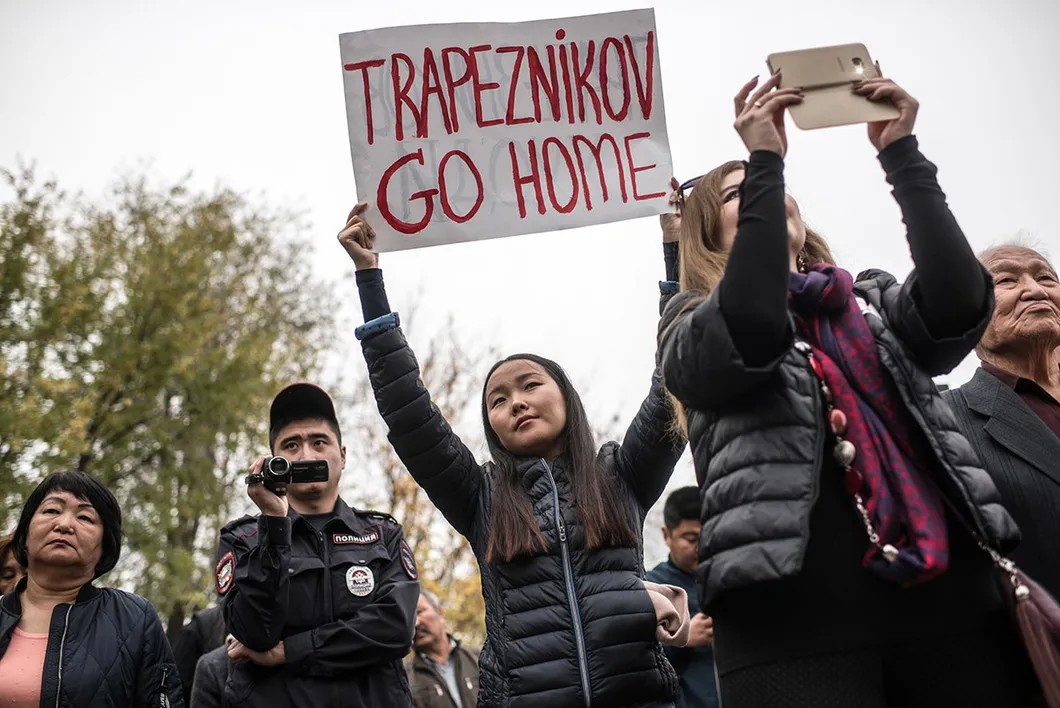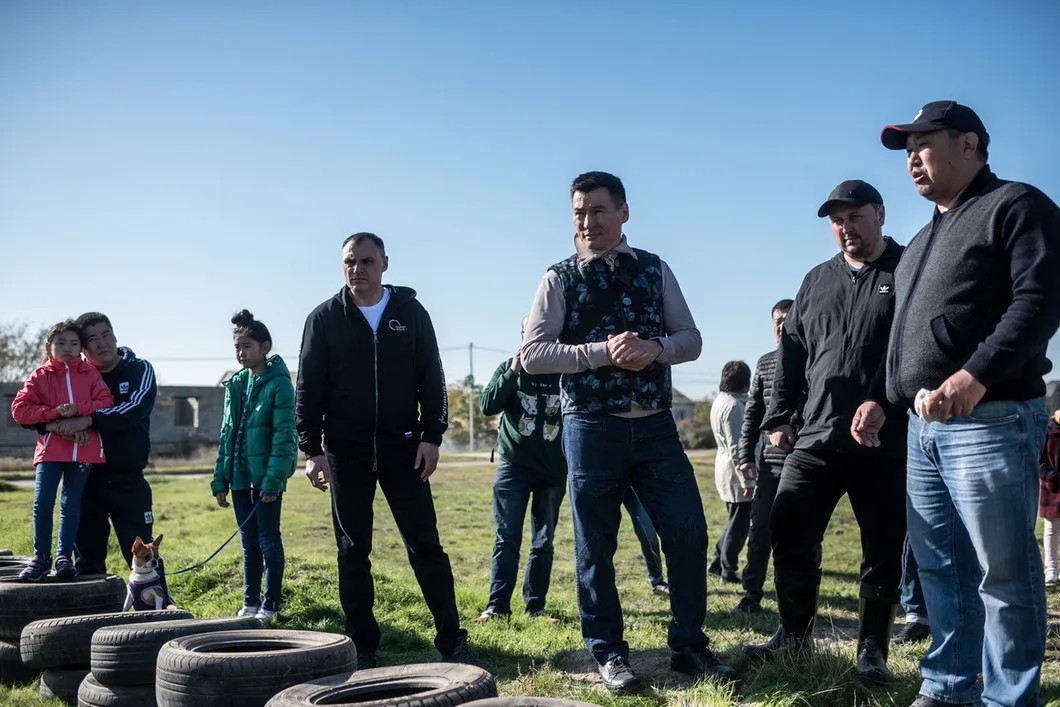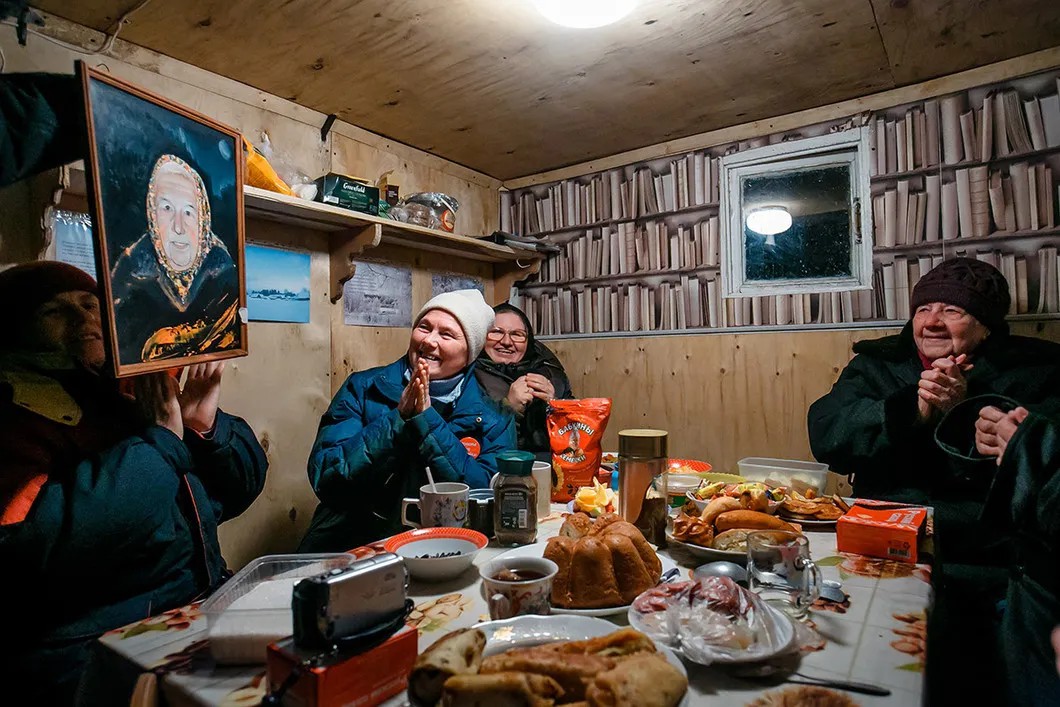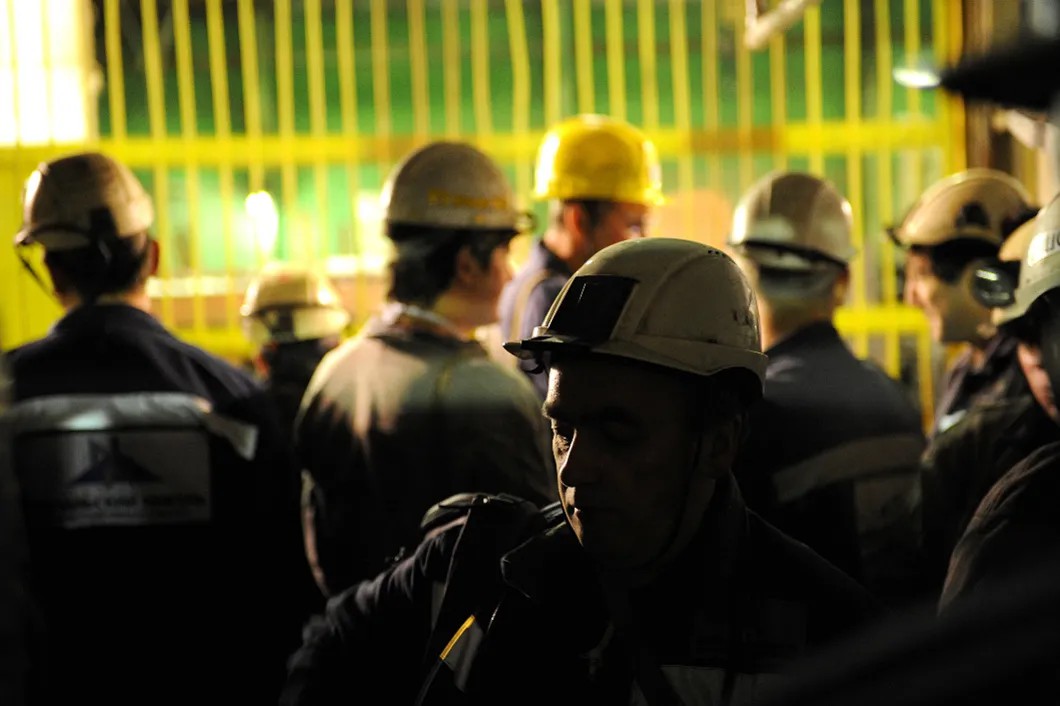
This Week’s Highlights
A special report on continuing protests in a buddhist region of Southern Russia, far-right demonstrators crash ground zero of the Russian environmental protests, a lethal accident at a Siberian mine exposes Russia’s dangerous extraction industry and Novaya Gazeta Columnist Kirill Martinov argues that Russian society needs to talk more about domestic violence.
- Now you can listen to “Russia, Explained” in Audio briefing: Google Podcast, Castbox.
- Want to get the full story? Click the links below for full-length articles in Russian.
Protests in Kalmykia, Explained
Before the war in Eastern Ukraine began, Dmitry Trapeznikov worked for the local football club in Donetsk. He later rose to become First Deputy Prime Minister of the self-proclaimed Donetsk People’s Republic; a region in Ukraine’s East under the control of Russian-backed separatists. Now, the Kremlin has ‘awarded’ him the job of heading Elista — the capital of Russia’s sparsely populated and traditionally autonomous southern region of Kalmykia; the only majority buddhist region in Europe. In response, protests have been going on there for a month, without coverage from Russian state media.
Big Plans.Protestors are demanding that Trapeznikov step down from his post, on the grounds that that he has nothing to do with Kalmykia and has never worked in Russia before (he didn’t even hold a Russian passport until April 12, 2019). Locals also object to his reputation as a former official in the so-called Donetsk People’s Republic. Trapeznikov himself says that “the rallies cannot be banned — the people should express their opinion!” He also has big plans for Elista, including figuring out public housing and developing municipal transport.

The Opposition.On October 27, 2019, two thousand people rallied at the city’s Victory Square, which was actually a decline in the number of protestors compared to the first rally on October 13. Now, the opposition in Kalmykia is deciding what to do next, “Getting thousands out on the square and achieving nothing is frustrating,” they admit. “Disillusionment [with the protests] will set in soon so we are thinking of new approaches,” explains local organizer Badma Byurchiev. “We are going to form an initiative group on a referendum for the return of direct mayoral elections.”
Backstory. The ongoing limitations on regional self-governance in Russia have made remote and economically under-developed regions like Kalmykia almost entirely dependent on the Kremlin. Similar protests venting frustrations over the lack of self-governance and the centralized state broke out in Buryatia earlier this year. In Kalmykia, past leaders have faced accusations of corruption and although the Head of the Republic, former world kickboxing champion Batu Khasikov, is popular among the people, even his supporters admit that there are problems in all sectors. As such, the current political crisis runs the risk of becoming an economic one and bringing on the collapse of the region as a whole.
“Even if we win the protests, I don’t think that the situation will change fundamentally. This is just the last words of a Republic that is already on its last legs, to be honest,” — protest organizer, Aldar Erendzhenov.
Read Novaya Gazeta’s special report on the protests in Kalmykia’s capital here.
Fascists Crash Anti-Landfill Protests
Far-right demonstrators appeared at ground zero of the Russian environmental protest movement this fall, crashing anti-landfill protests that local activists at the Shiyes station in northern Russia have been conducting for a year and a half. The landfill’s investor allegedly brought in the neo-Nazi demonstrators from a neighbouring region, in an attempt to turn the peaceful demonstrations into a violent rebellion. This would provide the authorities with the pretense for a violent crackdown, allowing them to clear the protest encampment that has prevented the construction of Europe’s biggest landfill up until this point. Activists were supposed to vacate their encampment by November 18, 2019, but are showing no sign of leaving.
Fascists For Hire. Bringing in nationalist agitators to disrupt peaceful demonstration is a well-known tactic in Russia. The deployment of the far-right groups to Shiyes was likely the brainchild of political strategist Pavel Maruschak from the neighboring Komi Republic. According to Novaya Gazeta’s sources, he has recently become an advisor to the head of the company building the landfill at the Shiyes station, Tekhnopark LLC.

Infiltrating Eco-protests.The activists in Shiyes are part of a larger environmental movement growing in Russia, over severe environmental degradation in the provinces. The anti-landfill protests in Shiyes have always united people of various political convictions and activists there are not professional revolutionaries with their own security protocols. As a result, nationalists have been able to take advantage of the fact that calling yourself an environmentalist is enough to get you a “pass.” For the authorities, introducing the far-right to the movement kills two birds with one stone: alienating other protestors who object to their nationalist ideology and giving the police an excuse to clear the encampment.
Поддержите
нашу работу!
Нажимая кнопку «Стать соучастником»,
я принимаю условия и подтверждаю свое гражданство РФ
Если у вас есть вопросы, пишите [email protected] или звоните:
+7 (929) 612-03-68
Read all about the appearance of fascist demonstrators in Shiyes here. To find out more about what peaceful demonstrators have to say, see Novaya Gazeta’s special photo report from the encampment.
Worsening Exploitation of Russian Miners, Explained
Three people were killed in an accident at the Taimyr underground mine in the Krasnoyarsk region of central Russia on October 22, 2019. The company that owns the mine, Russian mining giant Nornickel (previously known as Norilsk Nickel), has long been the object of a feud between its majority shareholder, tycoon Vladimir Potanin, and the U.S.-sanctioned billionaire oligarch, Oleg Deripaska. Nornickel immediately launched an internal investigation, which determined that the miners died due to a lack of oxygen. However, the accident comes as no surprise to many of the company’s employees, given declining labour standards at Nornickel’s Siberian plants and the company’s history of violating industrial safety regulations.
Gross Violations.The accident at the Taimyr mine raises a number of questions about the labour standards in Russia’s mining industry. During the summer of 2019, the local department of Russia’s technological supervisory body, Rostekhnadzor, suspended operations in some sections of the mine due to gross safety violations. The Norilsk Prosecutor’s Office then accused the company of covering up an accident that occurred during a rock collapse in the underground section of the mine on September 8, 2019, leaving one miner with a severe spinal injury.

Harsh Environments.Employees in the mining industry are under pressure to undertake increasingly hazardous work that often violates safety precautions. On top of working in harsh environments with limited job choices, miners face exploitation as companies strive to meet maximum output goals and respond to the global demand for Russia’s natural resources. Meanwhile, workers put themselves at risk in the hopes of gaining seniority, fulfilling ever-growing plans and receiving bonuses.
Backstory.As the world’s largest producer of palladium and one of the largest producers of nickel, Nornickel accounted for 0.7 percent of Russia’s GDP and 2.6 percent of Russia’s exports in 2018, The Moscow Times reports. Last year, the company spent 6.8 billion roubles (over $106 million) on bonuses paid to top management personnel — surpassing bigger state-owned conglomerates like Gazprom and Rosneft. Furthermore, since companies like Nornickel are based in Moscow, they don’t pay taxes into local budgets. For the Siberian city of Norilsk — which is essentially built around Nornickel — the company provides many people with employment and stability, but it also has a devastating environmental impact and holds a monopoly on the city’s services. As one local resident put it: “All the good, that is social packages, guaranteed stability — this is Nornickel, but all the bad is too.”
Read more about the accident in the Taimyr mine and the price Norilsk is paying for Nornickel here.
Why Russia Needs to Talk about Domestic Violence
The brutal murder of 24-year-old Anastasia Yeschenko in St. Petersburg has captured public attention in Russia for over a week, sparking sensationalized accounts in newspapers and on TV. And while there have been calls to abandon the topic, Novaya Gazeta Columnist Kirill Martinov argues that the case should serve as the basis for a nationwide discussion about the causes of domestic violence.
Police Response. “Strangely enough, the police have conducted themselves in a most dignified way so far,” Martinov writes of the investigation that took place near the perpetrator’s home on the Moika embankment. “I want to believe that other investigative proceedings and the trial itself will be carried out with the same care.” That being said, the official reaction to Oleg Sokolov’s violent behavior has appeared much too late. Another female student wrote a statement accusing Sokolov of torture eleven years ago, but there was no response from the authorities.
“The question is how to do justice, speak or be silent…Today’s public indignation is the only thing that can ensure adequate punishment for Sokolov,” — Novaya Gazeta Columnist, Kirill Martinov.
Divided Discussion.Given Oleg Sokolov’s status as a well-known history professor at St. Petersburg State University, discussion in Russian society about the murder has been split. While some are blaming the victim, saying the murder took place due to “excess,” others are saying that Sokolov should be denied the right to judicial protection and face reprisals. Another group refuses to see the incident as part of a wider pattern, resulting from the inability of the Russian state to protect victims of domestic violence (especially since the Supreme Court decriminalized it in 2017). Meanwhile, a final group are demanding a fair trial and raising the question of the systemic social issues that made this murder possible. Domestic violence affects a quarter of families in Russia, where an estimated 14 thousand women are killed by their husbands or relatives every year, the United Nations reports.
Read Kirill Martinov’s full column on why Russian society needs to talk about domestic violence here.
Thanks for reading! To keep up with Novaya Gazeta’s reporting throughout the week, you can follow us on Facebook, Twitter, Instagram and Telegram. Our video content is available on Youtube and don’t forget to visit our website for the latest stories in Russian. Until next time!
— The Novaya Gazeta Newsletter Team
Поддержите
нашу работу!
Нажимая кнопку «Стать соучастником»,
я принимаю условия и подтверждаю свое гражданство РФ
Если у вас есть вопросы, пишите [email protected] или звоните:
+7 (929) 612-03-68